Acompañamiento y Resistencia Global:
Politics and Praxis of Solidarities
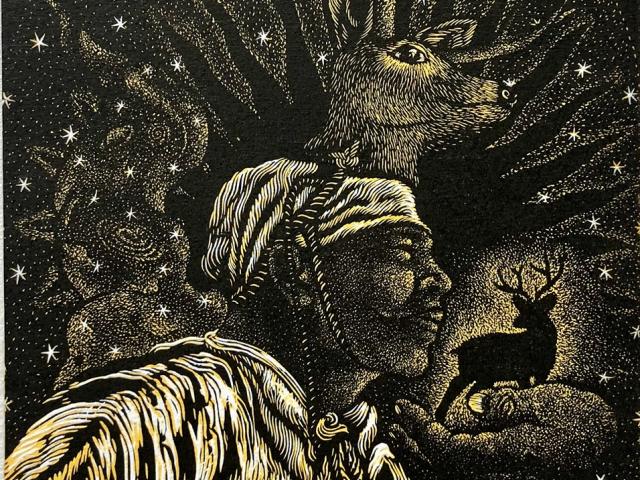
image by Gabriela Morac
April 16th, 2025
9:30am-5pm
International Center- Multipurpose Room
Hybrid event
To register for zoom: https://ucdavis.zoom.us/meeting/register/E0i3rwJgQxCXxD7YCrmkFw
At this conference we will honor and celebrate together the activism of diverse global actors to transform exclusionary spaces into places of autonomy, community building, resistance, solidarity and justice. Funded by the Mellon grant we envision a day of panels that visibilize the powerful historical and current legacy of diverse global actors engaging in politics and practice of global resistance, solidarity, accompaniment, and/or queer and joteria activism, resistance and solidarities.
9:30 am - Registration and Breakfast
10 :30 am Land Acknowledgement by Dr. Ines Hernandez Avila
10: 40 am Welcome by Chair, Dra. Lorena V. Marquez
10: 50 am Keynote Speaker Dr. Brenda Nicolas
11:20 am Ben Lopez, Amia Lynn Baptiste and Noelle Miller from the SAYS Youth Poetry Slam Team
11:30-1:00 pm Panel 1 Politics and Practice of Global Accompaniment and Resistance: Reproductive Rights – Moderated by Natalia Deeb-Sossa
Veronica Cruz-Sanchez – Las Libres
Dr. Deborah Billings
Dr. Fabiola Carrion De Liban
Dr. Laura Jimenez
Lunch 1-2 pm by Mezcalito Oaxacan Cuisine
2 -3:30 pm Panel 2 Politics and Practice of Global Resistance and Solidarity – Moderated by Maurice Rafael Magaña
Dr. Shannon Speed
Dr. María Josefina Saldaña-Portillo
Dr. Brenda Nicolas
3:30-5 pm Panel 3 Politics and Practice of Queer Resistance, Jotería Activism and Solidarities- Moderated by Alan Pelaez Lopez
Dr. Anita Revilla
Dr. Eddy Alvarez
Dr. José Manuel Santillana Blanco
5 pm Closing
Speakers

Ines Hernandez
is Niimiipuu/Nez Perce, of Chief Joseph's band, enrolled on the Colville Reservation, Washington, on her mother's side, and Tejana (and Mexican Indigenous) on her father's side. A scholar, poet, and visual artist, her research and teaching focus on contemporary Indigenous literature of the Americas, and Indigenous religious traditions. She is one of the six founders of the Native American and Indigenous Studies Association (NAISA). She received the Academic Senate Distinguished Teaching Award for her work mentoring graduate students (2009), and she also received the Outstanding Mentor Award from the Consortium for Research on Women. She is active in the following professional associations: NAISA, LASA (Latin American Studies Association), MLA (Modern Language Association), and the AAR (American Academy of Religion), particularly with the Native Traditions in the Americas Group. Professor Hernández-Ávila has long been a bridge between Native American Studies and Chicanx Studies, in her scholarship, her creative work, and her activism.

Lorena V. Márquez
is the Chair of the Chicana/o/x Studies Department and serves as the Project Director of the Sacramento Movimiento Chicano and Mexican American Education Project Oral History Project, a collective of Sacramento Chicana/o movement elders and organizers whose mission is to record and preserve the oral histories of Sacramento Chicana/o Movement activists from 1965-1980. During the spring 2014 and 2015 quarters, her UC Davis Qualitative Methods Research undergraduate students conducted interviews of Sacramento Chicana/o movement activists and participants as part of their course requirements. In the winter 2019 and 2020 quarters, her students transcribed the interviews. To date, there are 98 video-recorded oral histories. These interviews are housed at the Sacramento State Special Collection and University Archives. https://library.csus.edu/collection/9851. The findings of the interviews serve as the basis for her second book, In their Voices: Chicana/o Movement Elders Reflections on the Civil Rights Era.
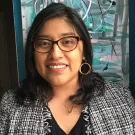
Brenda Nicolas
(Zapotec) is an Assistant Professor in the Department of Global and International Studies at the University of California, Irvine (UCI). Her work looks at the transborder communal experiences of Zapotecs between Los Angeles and Oaxaca. Specifically, she looks at women’s and U.S.-raised generations who have participated in their pueblo’s sociocultural and political organizing across the U.S. and Mexico for the past fifty years. Dr. Nicolas’s book project titled, Pueblo Autonomy: Indigenous Communal Practices Across Settler Colonial Borders, examines four generations who have continuously politically and culturally organized through their hometown associations, traditional dances, and Oaxacan brass bands. As a trained interdisciplinary and area studies scholar, Dr. Nicolas uses Indigenous thought and voices from the global south to bring into dialogue Latin American, Latinx, and Indigenous studies. Dr. Nicolas was born and raised in Los Angeles where she grew up deeply immersed to her Indigenous Oaxacan community doing traditional dances since the age of seven by participating with her pueblo’s hometown association, the Los Angeles La Guelaguetza, and other Oaxacan dance groups. She currently serves in her community’s council in Los Angeles. In 2015, she co-founded the Oaxacan College Initiative (OCI) to provide mentorship to the growing Indigenous diaspora from Latin America entering U.S. colleges and universities where she continues to provide mentoring, arrange campus tours, and provide feedback to high school and undergraduate students’ admissions application to undergraduate and graduate school. She has also organized and been invited to a series of community events as a former board of directors of the Indigenous Oaxacan non-profit in California, the Centro Binacional Para el Desarollo Indígena Oaxaqueño/Binational Center for the Development of Oaxacan Indigenous Communities (CBDIO) and as a former community member for the Frente Indígena de Organizaciones Binacionales/Binational Front of Indigenous Organizations (FIOB) in San Diego and Los Angeles. In addition, Dr. Nicolas has been a co-host for the Senderos de Oaxaca in Pacifica Radio KPFK, a community station that touches on political, social, cultural, and educational topics by inviting community members and critically-engaged scholars.
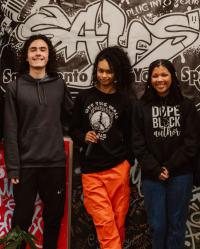
SAYS Youth Poetry Slam Team
Sacramento Area Youth Speaks (SAYS) is a nationally recognized outreach program of UC Davis, committed to uplifting young voices through the transformative power of spoken word, poetry, and storytelling. Under the visionary leadership of Patrice Hill and Denisha "Coco" Bland, SAYS delivers culturally relevant workshops, mentorship, and platforms for youth to speak truth, build confidence, and spark change in their communities. In 2024, the SAYS Slam Team proudly placed 4th in the nation at the Brave New Voices International Youth Poetry Slam Festival, continuing a legacy of creative excellence and community impact.
Meet the powerful youth poets of the 2024 SAYS Slam Team:
- Benjamin “Ben” Lopez – A 17-year-old student at Inderkum High School, Ben is a multi-talented poet, student journalist, and athlete. As a powerful voice on the 2024 SAYS Slam Team, he uses poetry to explore identity, resilience, and social justice. Off the stage, Ben contributes thoughtful articles to Sacramento School Beat, highlighting student perspectives and school life. He’s also a dedicated member of Inderkum’s junior varsity water polo team, showing strong leadership and teamwork in and out of the classroom. Ben’s creative drive and commitment to the community make him a standout youth leader.
- Amia Lynn – Amia Lynn – A college student, poet, and singer, Amia brings soul, passion, and fierce dedication to the SAYS stage. Her storytelling is rooted in truth and healing, offering inspiration through every performance. She now serves as a poet-mentor educator with SAYS, guiding and uplifting the next generation of youth poets. In addition to her work in spoken word, Amia is actively pursuing her dreams of becoming a well-known singer and graphic artist, using her creative talents to make a lasting impact across multiple art forms.
- Noelle “Noa Sanaa” Miller – A 16-year-old poet, author, and spoken word artist from Leroy Greene Academy, she published her first book at 14 and continues to use her voice to advocate for justice, mental health, and youth empowerment. Noa is the founder of the Poetic Justice Freedom Writing Workshops and was recently honored at TEDxKids El Cajon, receiving city and county recognition for her creative leadership.
https://www.says.ucdavis.edu/
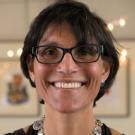
Natalia Deeb-Sossa
is a Professor of Chicana/o/x Studies and Co-chair of the University of California Ethnic Studies Faculty Council (UCESFC). She is an interdisciplinary and transnational Chicana feminist health scholar who has made significant contributions in the areas of gender, race/ethnicity and class, and how they influence reproductive justice and reproductive health, community politics, cultural citizenship, and social justice. Natalia’s first book published in 2013 with University of Arizona Press (UAP), Doing Good: Racial Tensions and Workplace Inequalities at a Community Clinic in El Nuevo South, analyzes how health-care practitioners crafted a moral identity by drawing on the cultural resources available to them, using gendered frames, but also racialized frames, classed frames, and nationalist frames. Deeb-Sossa has published three more books. In 2019 she edited with University of Arizona Press, Community-Based Participatory Research: Testimonios from Chicana/o Studies, an anthology on Chicana/o researchers’ experiences when implementing Community-Based Participatory Research, which showcases the complexity of doing activist scholarship, the variety of ways it may be implemented, how it has been used to create sustainable change, and the challenges to create community empowerment. In 2022 she co-edited with Dr. Bickham-Mendez, Latinx Belonging: Community Building and Resilience in the United States (UAP), a volume that centers and theorizes the production of belonging through the use of case studies that highlight place-specific ongoing, dynamic negotiations of the “everyday.” Her latest co-edited book (2024) with Dr. Yvette G. Flores and Dr. Angie Chabram, Testimonios of Care: Feminist Latina/x and Chicana/x Perspectives on Caregiving Praxis, (UAP), gives voice to diverse Chicana/x and Latina/x caregiving experiences.
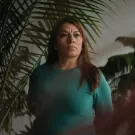
Veronica Cruz-Sanchez
is a feminist and defender of women’s rights. Cruz Sánchez is the founder and coordinator of the advocacy area of Las Libres, an organization based in the State of Guanajuato in Mexico. She has extensive experience in accompanying others to safe abortions at home, in the creation of the accompaniment networks for safe medical abortions and recently promoted the creation of a network of accompaniment in Mexico and the US dedicated to promoting access to abortion in Texas and other states where restrictions exist.
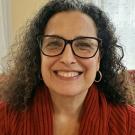
Deborah Billings
conducts research, evaluation, and programmatic work in the areas of sexual and reproductive health, rights, and justice, with particular emphasis on contraceptive access, safe abortion, prevention of gender-based violence and group-based for prenatal and postpartum care. She works globally to address these issues and has consulted with agencies and organizations, including the World Health Organization (WHO), World Bank, UN Trust Fund to End Violence against Women (UNTF), and The Fund for Global Human Rights.

Fabiola Carrion De Liban
is the Director, Sexual & Reproductive Health at the National Health Law Program’s Los Angeles office, where she works on reproductive and sexual health access and services in California and across the country. Her portfolio focuses on abortion coverage at the state level, primarily in Medicaid and the marketplaces. Fabiola also coordinates NHeLP’s groundbreaking work on telehealth by ensuring that Medicaid enrollees are centered in emerging telehealth policies.
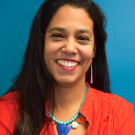
Laura Jimenez
is the Executive Director at California Latinas for Reproductive Justice (CLRJ). CLRJ is a statewide organization committed to honoring the experiences of Latinas to uphold their dignity, their bodies, sexuality, and families.
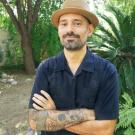
Maurice Rafael Magaña
is an urban anthropologist and ethnic studies scholar who studies social movements, migration, bordering, and the construction of social difference. His work focuses on understanding how everyday people collectively envision and enact more just, liberatory horizons. He has worked extensively with activists and artists in the United States and Mexico and collaborated with applied research teams working with the labor movement in Honduras, South Africa, and Costa Rica. His first book, Cartographies of Youth Resistance: Hip-Hop, Punk, and Urban Autonomy in Mexico, published by University of California Press, won the Anthony Leeds Prize for outstanding book by the Critical Urban Anthropology Association.

Shannon Speed
is a citizen of the Chickasaw Nation. She is Director of the American Indian Studies Center (AISC) and Professor of Gender Studies and Anthropology at UCLA. Dr. Speed has worked for the last two decades in Mexico and in the United States on issues of indigenous autonomy, sovereignty, gender, neoliberalism, violence, migration, social justice, and activist research. She has published numerous journal articles and book chapters in English and Spanish, as well as published six books and edited volumes, including her most recent, Incarcerated Stories: Indigenous Women Migrants in the Settler Capitalist State. Dr. Speed currently serves as the Past President of the Native American and Indigenous Studies Association (NAISA).

María Josefina Saldaña-Portillo
is a professor in the Department of Social & Cultural Analysis Department & the Center for Latin American and Caribbean Studies at NYU. Her book, Indian Given: Racial Geographies across Mexico and the United States (Duke UP 2016), received the 2019 Casa de Las Americans Literary Prize in Latino Studies; the 2017 ASA John Hope Franklin Book Prize; and the 2017 NACCS Book Award. With thirty articles, in English and Spanish, on revolution, subaltern politics, indigenous peoples, racial formation, migration, narco-economies, and Latin American and Latinx cultural studies, her most recent include “Indians Have Always Been Modern: Roma, The Settler Colonial Paradigm & Latinx Temporality” (Aztlán, Fall 2020), which rethinks decolonialism from a Latin American perspective; and “The Violence of Citizenship in the Making of Refugees: The U.S. and Central America,” which explores the integral role gendered labor and violence play in the drug economy (Social Text, Fall 2019). She is the Chairwoman of the Coalición Mexicana, an immigrants’ rights organization, and an expert witness for Central American asylum cases with legal aid agencies internationally.
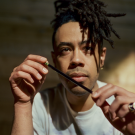
Alán Pelaez Lopez
is an Assistant Professor of literature and visual culture in the Department of Chicana/o/x Studies. They specialize in undocumented African and African diasporic migration, performance contracts (legal, philosophical and theatrical), state violence, transgender studies in the Americas and the Antilles, and anti-colonial feminisms. As a migration studies scholar, Dr. Pelaez Lopez attends to “Black illegalities,” defined as actions Black im/migrants engage to survive and un/perform nonconsensual (labor, social, spiritual, romantic, and national) contracts they are subjugated to in the countries they have migrated to. Such illegalities include the right for Black migrants to seek political asylum in the United States, Mexico, Canada, France, Spain, and Germany; political activism inside immigrant detention centers and in solitary confinement; the commercialized figure of the hard-working migrant as a non-Black migrant; and strict contracts of how a refugee, asylee, or irregular migrant must act in order to obtain conditional visas, residency status, etc. As a scholar of trans* studies, Dr. Pelaez Lopez change the “queer ethnic studies” minor during their tenure at San Francisco State University to the “queer and trans ethnic studies” minor, marking an institutional political commitment to trans* studies.

Anita Tijerina Revilla
is a muxerista and joteria activist-scholar, Professor, and Chair of CSULA’s Department of Chicana(o) and Latina(o) Studies. Her research focuses on student movements and social justice education, specifically in the areas of Chicana/Latina, immigrant, feminist and queer rights activism. Her expertise is in the areas of Jotería (Queer and Latinx) Studies, Chicanx Education, Chicana/Latina Feminism, and Critical Race & Ethnic Studies.
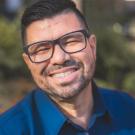
Eddy Alvarez
is a first-generation college student and a former elementary school teacher. An interdisciplinary scholar, he obtained an B.A. and M.A. in Spanish from California State University, Northridge, and an M.A. and Ph.D. in Chicana and Chicano Studies from University of California, Santa Barbara. His research interests include Chicanx and Latinx aesthetics, performance, and popular culture, Gender and Sexuality, Queer oral histories, Los Angeles queer Latinx histories, Queer of color theories, Jotería Studies, Jotería pedagogies, Queer Space, Feminist geographies, Sound Studies, and Critical Fat Studies. His academic and creative work has been published in Aztlan: A Journal of Chicano Studies, Revista Bilingüe/Bilingual Review, TSQ: Transgender Studies Quarterly, Journal of Lesbian Studies, and Sounding Out! The Sound Studies Blog. Currently, he is working on a book manuscript titled Finding Sequins in the Rubble: Memory, Space and Aesthetics in Queer Latinx Los Angeles, an oral history and archival project which maps physical and ephemeral sites of memory and quotidian moments of pleasure and resistance for queer and trans Chicanx and Latinx communities in LA. He is also working on a book of essays and poems about growing up queer in a Cuban and Mexican family in the San Fernando Valley.
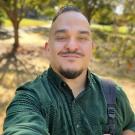
José Manuel Santillana Blanco
is a Queer Xicanx Feminist activist, scholar and storyteller. As the son of Mexican immigrant parents, José Manuel was politicized within the rural migrant farmworker landscapes of central California. Since 2022, he is a University of California President’s and Andrew W. Mellon Foundation Postdoctoral Fellow in the Department of American Studies at UC Davis. Drawing on the work of Black, Latinx and Indigenous decolonial thinkers, his work explores the ways Black, Immigrant and Indigenous women-led community struggles across the United States have been foundational to our understanding of racialized social life, ecological violence and resistance across entangled geographies.
Co-Sponsored by:



